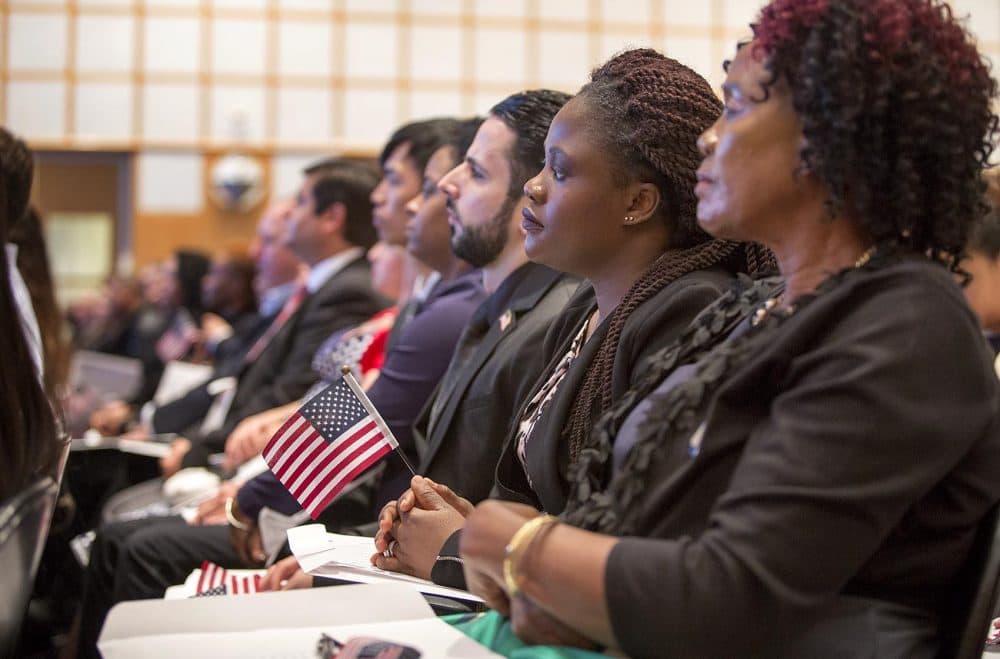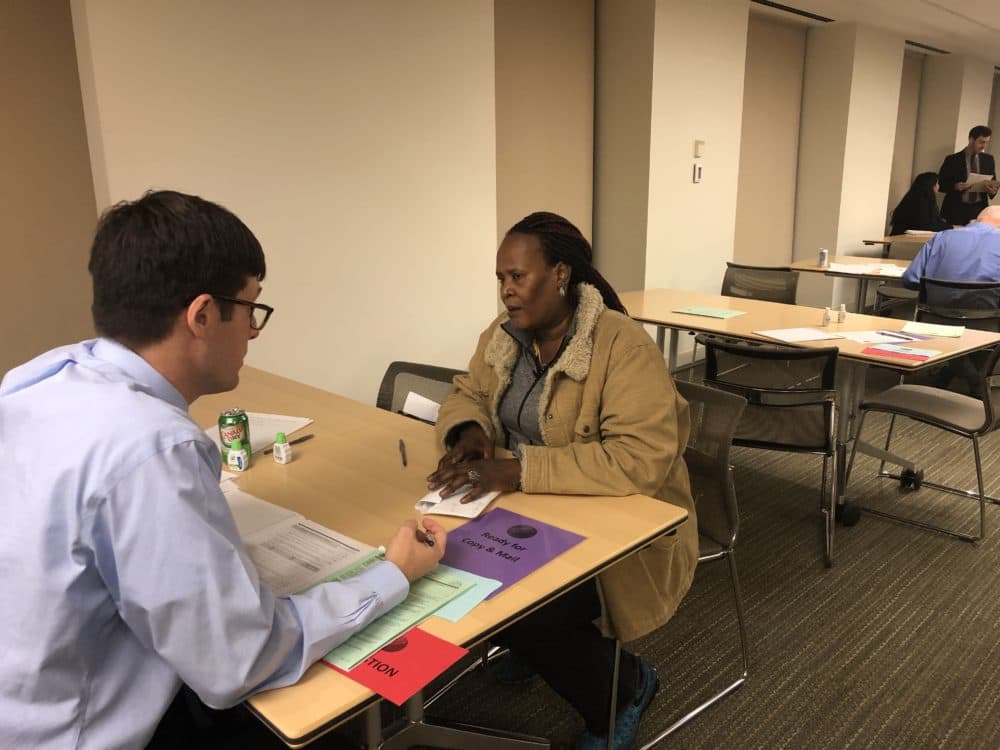Why Becoming an American Citizen Should Not Be Easy
Here's Why Becoming A U.S. Citizen Just Got More Difficult 04:27 Copy the code below to embed the WBUR audio player on your site
Copy the code below to embed the WBUR audio player on your site
Play

Megeliea Adrian is sifting through a crinkled business envelope stuffed with her family's passports and green cards while a volunteer attorney reviews her citizenship application.
She is one of 50 or so aspiring U.S. citizens clutching fistfuls of documents and filling out paperwork in the conference room of a downtown Boston law firm.
For 51-year-old Adrian, who was born in Haiti and has lived in the U.S. for almost 20 years, citizenship means one thing: "You not citizen, you not vote. I love America, I'm [going to become a] citizen, I'm gonna vote," she says.

Becoming a citizen isn't easy and it's about to get harder.
There are numerous eligibility requirements, heaps of paperwork and documents to process, and a pretty hefty application fee. Adrian, who currently has a green card, is surprised to hear it costs more than $700 to apply for citizenship.
Melanie Torres is the director of programs and operations for Boston-based Project Citizenship, which sponsors workshops like the one Adrian is attending.
The nonprofit's goal is to eliminate barriers to naturalization. For most of their clients, Torres says, the main obstacle is cost.
"The hardest thing is the payment, so the fee — not for services, but just for the application itself — is right now $725," Torres says.
The federal government has waived fees for people who can prove they receive federal and state benefits like food stamps or Medicaid. But as of Monday, that's not going to be enough.
U.S. Citizenship and Immigration Services (USCIS) will now require something called a tax transcript from the IRS. Torres says obtaining this document will be nearly impossible for many of their clients.
"Most of our clients are transient, a lot of them are elderly and don't file taxes or are claimed as dependents on other people's taxes or live in sort of informal households, so it's really, really hard to prove their income," she says.
Project Citizenship recently filed a federal lawsuit in Boston against the Trump administration. The suit challenges the waiver changes, arguing it will ultimately decrease the number of eligible immigrants who are able to apply for citizenship. Nearly 40% of naturalization applications across the country included a fee waiver in 2017, according to the complaint.
A spokesperson for Citizenship and Immigration Services noted in an email that the agency relies on fees to cover the costs of its operations. Fee waivers have totaled hundreds of millions of dollars a year and to balance its books USCIS says it's had to raise other fees.
But, Torres says the Trump administration's reforms are motivated by more than fiscal concerns.
"We know that the election is coming up," Torres says. "We know that everyone is more interested right now and in 2020, we're going to see a huge surge in interest and we know that this is because they don't want low-income immigrants to vote."
Jessica Vaughan heads up policy studies for the Center for Immigration Studies — a conservative group advocating for more restrictive immigration laws. She says the new eligibility requirements for fee waivers will spread the processing costs more evenly.
"It's an effort to make it more fair and there will be some additional burden on some people to show that they qualify for the fee waiver but it's important that we have a system with some integrity," Vaughan says.
These new waiver eligibility requirements take effect Monday. The Trump administration has proposed eliminating fee waivers altogether and has also proposed hiking the current naturalization fee from $725 to $1,170.
This segment aired on December 2, 2019.
mckenzieanuardinut.blogspot.com
Source: https://www.wbur.org/news/2019/12/02/citizenship-application-fee-green-card-naturalization
0 Response to "Why Becoming an American Citizen Should Not Be Easy"
Postar um comentário